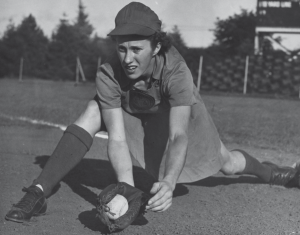On April 25, 1986 in the city of Chernobyl in the Soviet Union, Dr. Valentin Belokon was just getting back to his office from tending to a person that had an asthma attack, when he saw two explosions at the nuclear power plant. When he was informed by his paramedical assistant that there had been an explosion that released massive amounts of radiation, he immediately sent two ambulances to the site, with him in pursuit. When Dr. Belokon arrived at the site, an eighteen-year-old man was brought to him with a very severe headache. The young man kept vomiting and he had nausea. Other people came to Dr. Belokon with similar symptoms, along with others like dryness and a blocked throat. Many of them were also beginning to act in a very strange manner. They would lose their ability to speak and would be confused and disoriented. All of these people were suffering from radiation sickness caused by their exposure radiation.1

Many of the people that had experienced the radiation first-hand were hospitalized and were being treated for radiation sickness.2 The numbers of those affected dramatically increased in the following months, as it was estimated that 600,000 people were exposed to the radiation. Victims were sent to different areas, due to the high number of people that needed to be examined and treated. Those that showed no sign of medical issues were sent home and asked to come back the following day for a follow-up examination. Patients that were sick, however, remained in the hospital and were seen by “the best scientific and medical specialists of the country, from specialized clinics in Moscow and other cities.”3 The patients stayed for months in the hospital, such as Dr. Belokon himself, who was discharged in the fall of 1986. Many of them were permanently damaged and affected by the radiation.4
The biggest problem that arose from the absorption of the radiation, apart from the radiation sickness, was that those who were exposed would pass on the health problems that the radiation caused to generations to come. The rates of cancer would surely rise in later years, especially thyroid cancer, as the thyroid would absorb much of the radiation.5 Other problems that would arise would be immune system deficiencies, cardiovascular diseases, and deformities in the children of those who were exposed to the high amounts of radiation. These health problems would arise due to the fact that the massive amounts of radiation absorbed ultimately changes the genetic structure of those that were affected and their offspring.6 The estimated number of deaths that would be caused from the indirect exposure of the radiation was set to approximately 4,000.7

Chernobyl was one of the biggest radiation disaster that has occurred in history. Thousands of people were affected by the biological and internal problems that the radiation caused. Many people are still being treated for cancers and other illnesses that can be traced back to the explosion. There were also many deaths that were caused throughout due to the nuclear power plant accident that occurred in the city of Chernobyl.
- Zhores A. Medvedev, The Legacy of Chernobyl (New York: W.W. Norton 1990), 132-133. ↵
- Zhores A. Medvedev, The Legacy of Chernobyl (New York: W.W. Norton 1990), 136. ↵
- Mikhail Gorbachev, “Vital speeches of the Day,” June 26,1986. ↵
- Zhores A. Medvedev, The Legacy of Chernobyl (New York: W.W. Norton 1990), 136. ↵
- Adriana Petryna, Life Exposed: Biological Citizens After Chernobyl ( New Jersey: Princeton University Press 2003), 1-2. ↵
- Aleksandra Fucic, “Follow up studies on genome damage in children after Chernobyl nuclear power plant accident,” Archives of Toxicology 9, no.9 (June 2016): 2147-2155. ↵
- Columbia Electronic Encyclopedia, 2017, s.v. “Chernobyl.” ↵



56 comments
Bictor Martinez
I have heard of radiation and what it could do to people but I have never knew a case where people got exposed to radiation. I enjoyed reading that when Dr. Belokon had saw the accident in Chernobyl he did not hesitate to go and try to assist the people that had been exposed to the radiation. It is extremely unfortunate that thousands of people got ill due to the radiation however, it is something that we can learn from in the future to prevent from letting something like to occur again.
Brianna Ford
I never knew about this tragic event, although this article was short, it was very informative. I learned about an event that I never knew took place until now. Chernobly is what I consider to be one of the worst nuclear disasters in world history. Its wild that over 600,000 people got exposed to this radiation that is a really big number, and the fact that it led to not only short term effects but long terms as well especially biological. I pray that nothing tragic like this ever happen again.
Yadira Chavez
Chernobyl always sounded like a story from an alternate universe, because of how catastrophic it was. In middle school i was shown a documentary that opened my eyes to how many people suffered. It wasn’t only the directly hit either, it was their children, and their grandchildren that were not even present at the time of the disaster. So much pain came from this event, and it reminds us that we should not mess with technology that we cannot control.
Sebastian Carnero
Nuclear energy can be very useful in areas such as medicine, but it can also be very dangerous. Before reading this article I knew about some effects of radiation and the fact that the health problems could be “passed”. But reading the numbers gives you a different perspective. 600000 people exposed to radiation and approximately 4000 victims of death by indirect radiation. I can’t imagine the work and effort put into making a Nuclear Plant in order to avoid such a catastrophe happening again.
Karina Cardona Ruiz
I found it refreshing how you introduced your article by inserting Dr.Belokon’s anecdote from the day of the explosion as opposed to just having one point of view throughout. I would have liked if you had mentioned what caused the explosion as well as how the authorities handled the situation. I thought your article was very informative and I learned stuff about the disaster that I had not known prior. For example, I did not know the extent of the immediate effects on those exposed to the radiation.
Noah Bolhuis
Chernobyl was perhaps one of the worst nuclear disasters in human history. Everyone knows about Chernobyl, and everyone knows that receiving an excess amount of radiation can cause severe medical problems long term. I wasn’t aware of the side effects that are caused right after the exposure, such as the man Dr. Belokon saw hours after the disaster. This article also shared that roughly 600,000 people were exposed to the radiation over the years. That number is a lot larger than I would have expected, but it shows the magnitude of this disaster.
Luis Magana
Chernobyl was a very publicly know disaster. I wasn’t very informed on the fact that a vast number of people were affected and the generations to follow as well. Being exposed to radiation is very dangerous, but being exposed to a radiation explosion like Chernobyl is devastating. The number of people who got cancer rose and people began the have weird symptoms such as losing the ability to talk. As a medical professional working to help people affected would be very interesting.
Marina Castro
The disaster of Chernobyl was a very unexpected event. The Russian government wasn’t prepared for the outcome of the Chernobyl power plant. When people started experiencing the effects of radiation, not much was known about it. Even the years that followed were harsh for the people affected by radiation. Doctors were neither prepared or equipped to reverse the damage the disaster had caused. Today we can still see the repercussions of the Chernobyl disaster.
Natalia Flores
The article hones in on the medical problems that people affected by radiation suffered from. It’s astonishing that people’s genetic code was altered. Though, I feel that this article kind of was a blanket statement to the people that already died during the initial explosion. However, I do enjoy the amount of information and that people were stuck in hospitals for months, including doctors themselves.
Christopher King
I enjoyed this article because there is so much of an overlook on the consequences resulting from radiation. She focuses on the medical repercussions rather than the incident itself. So many were victim to Russia’s lack of precaution at the power plant and not only were the civilians in the area affected but so were towns and cities all across Europe. I liked that the author focused on a specific doctors perspective and experiences that started immidiately after the incident happened. Because so many have died from the result of this incident there are not a lot of people who experience first hand left alive to talk about this.